Filter by
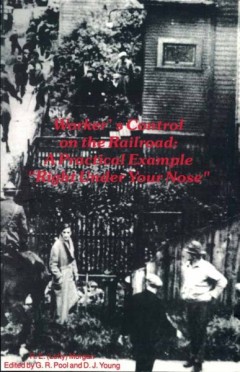
Workers’ Control on the Railroad A Practical Example “Right Under Your N…
The late “Lefty” Morgan, a British Columbia railway engineer, outlines his philosophy of workers’ control in this fascinating volume. The volume has a scholarly introduction by University of New Brunswick anthropologist, Gail Pool, and University of Toronto PhD student in anthropology, Donna Young. They situate Lefty politically and historically and locate Lefty’s work in current debate…
- Edition
- -
- ISBN/ISSN
- 0-9695835-4-0
- Collation
- -
- Series Title
- CCLH Publications
- Call Number
- -
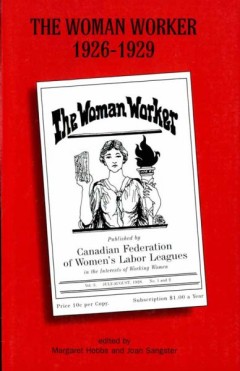
The Woman Worker 1926-1929
This volume presents the inaugural issue and articles from The Woman Worker, the official newspaper of the Canadian Federation of Women’s Labor Leagues, during its 1926 to 1929 run. Edited by prominent Communist Party of Canada leader Florence Custance, The Woman Worker’s objective was to “champion the Protection of Womanhood, and the cause of the Workers generally.” In this collection,…
- Edition
- -
- ISBN/ISSN
- 1-894000-01-3
- Collation
- -
- Series Title
- CCLH Publications
- Call Number
- -
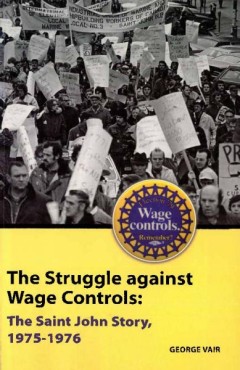
The Struggle against Wage Controls The Saint John Story, 1975-1976
In October 1976 one million Canadian workers walked off the job to protest the wage controls imposed by Prime Minister Pierre Elliott Trudeau. In a memorable personal account of this historic general strike, Saint John labour activist George Vair recalls how workers in one New Brunswick city mobilized to defend themselves and their unions and defeat the unpopular program.
- Edition
- -
- ISBN/ISSN
- 1-894000-07-2
- Collation
- -
- Series Title
- CCLH Publications
- Call Number
- -
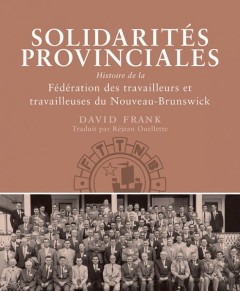
Solidarités provinciales Histoire de la Fédération des travailleurs et tr…
La Fédération des travailleurs et travailleuses du Nouveau-Brunswick, fondée en 1913, est la deuxième plus ancienne fédération provinciale du travail au Canada. Son histoire remonte aux premières campagnes en faveur de l’indemnisation des accidents du travail et de la reconnaissance syndicale, et elle se poursuit dans les plus récentes luttes visant à défendre les normes sociales et…
- Edition
- -
- ISBN/ISSN
- 978-1-927356-29-6
- Collation
- -
- Series Title
- Working Canadians: Books from the CCLH
- Call Number
- 336 pages
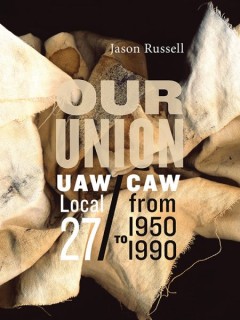
Our Union UAW/CAW Local 27 from 1950 to 199
In Our Union, Jason Russell argues that the union local, as an institution of working-class organization, was a key agent for the Canadian working class as it sought to create a new place for itself in the decades following World War II. Using UAW/CAW Local 27, a broad-based union in London, Ontario, as a case study, he offers a ground-level look at union membership, including some of the socia…
- Edition
- -
- ISBN/ISSN
- 978-1-926836-43-0
- Collation
- -
- Series Title
- Fabriks: Studies in the Working Class
- Call Number
- 336 pages
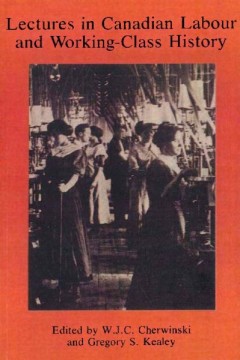
Lectures in Canadian Labour and Working-Class History
In 1983 and 1984 the Canadian Studies Program of the Secretary of State funded four lecture series at Canadian universities on the history of the Canadian working class. This volume presents many of the lectures in a published version. Ranging from east to west and covering two centuries of Canadian labour history, the volume includes a selection of essays by some of Canada’s leading social h…
- Edition
- -
- ISBN/ISSN
- 0-9692060-0-3
- Collation
- -
- Series Title
- CCLH Publications
- Call Number
- -
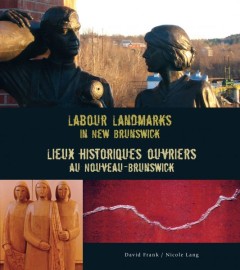
Labour Landmarks in New Brunswick | Lieux historiques ouvriers au Nouveau-Bru…
Une aventure originale en histoire publique — une tournée de 50 lieux où des familles, des travailleuses et des travailleurs, des syndicats et des communautés ont reconnu la place des travailleuses et des travailleurs dans l’histoire du Nouveau-Brunswick du 20e siècle. Dix courts chapitres, des notes explicatives, des illustrations et une carte.
- Edition
- -
- ISBN/ISSN
- 978-1-894000-09-3
- Collation
- -
- Series Title
- CCLH Publications
- Call Number
- -
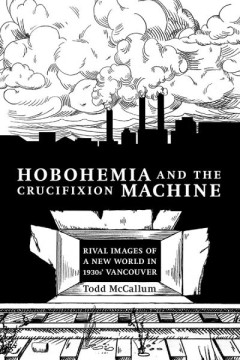
Hobohemia and the Crucifixion Machine Rival Images of a New World in 1930s V…
Vancouver’s municipal government entered into contractual relationships with dozens of private businesses, tendering bids for meals in much the same fashion as for printing jobs and construction projects. As a result, entrepreneurs clamoured to get their share of the state spending. With the emergence of work relief camps, the provincial government harnessed the only currency that homeless me…
- Edition
- -
- ISBN/ISSN
- 9781926836287.01
- Collation
- -
- Series Title
- Fabriks: Studies in the Working Class
- Call Number
- -
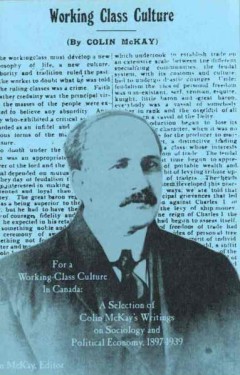
For A Working-Class Culture in Canada A Selection of Colin McKay’s Writing…
This book sets out to present the economic and social writings of Colin McKay, a pioneer Marxian sociologist and economist in Canada (and no relation to the author), and to place McKay in the context of the international socialist tradition. The manuscript takes the form of an extensive biographical essay, five substantive sections that present and examine McKay’s thought both thematically an…
- Edition
- -
- ISBN/ISSN
- 0-9695835-6-7
- Collation
- -
- Series Title
- CCLH Publications
- Call Number
- -
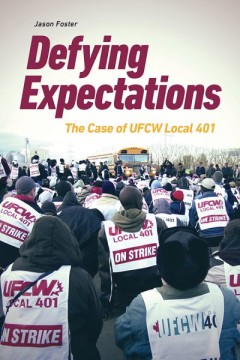
Defying Expectations The Case of UFCW Local 401
In this study of UFCW 401, Foster investigates a union that has had remarkable success organizing a group of workers that North American unions often struggle to reach: immigrants, women, and youth. By examining not only the actions and behaviour of the local’s leadership and its members but also the narrative that accompanied the renewal of the union, Foster shows that both were essential co…
- Edition
- -
- ISBN/ISSN
- 9781771991995.01
- Collation
- -
- Series Title
- Working Canadians: Books from the CCLH
- Call Number
- -
 Computer Science, Information & General Works
Computer Science, Information & General Works  Philosophy & Psychology
Philosophy & Psychology  Religion
Religion  Social Sciences
Social Sciences  Language
Language  Pure Science
Pure Science  Applied Sciences
Applied Sciences  Art & Recreation
Art & Recreation  Literature
Literature  History & Geography
History & Geography